A new year is on the Horizon. This is a time when many people start to think about what changes they can make through goals or personal resolutions.
What’s the difference between a goal and a resolution? Well, a resolution tends to be a starting point, such as making yourself a pledge to begin exercising more or eat better.
A goal is more focused on a specific endpoint, such as losing ten pounds in six months, or walking for 20 minutes every evening after dinner. A goal has planned steps and measurable success.
So this year, when you think about what you want to accomplish in 2024, you might consider setting goals instead of new year’s resolutions. But where do you start?
Reflect on 2023
To know where you’re going, it can help to know where you’ve been. Research has shown that reflecting on your past endeavors can improve your future performance. You can’t change the past, but you can learn from it.
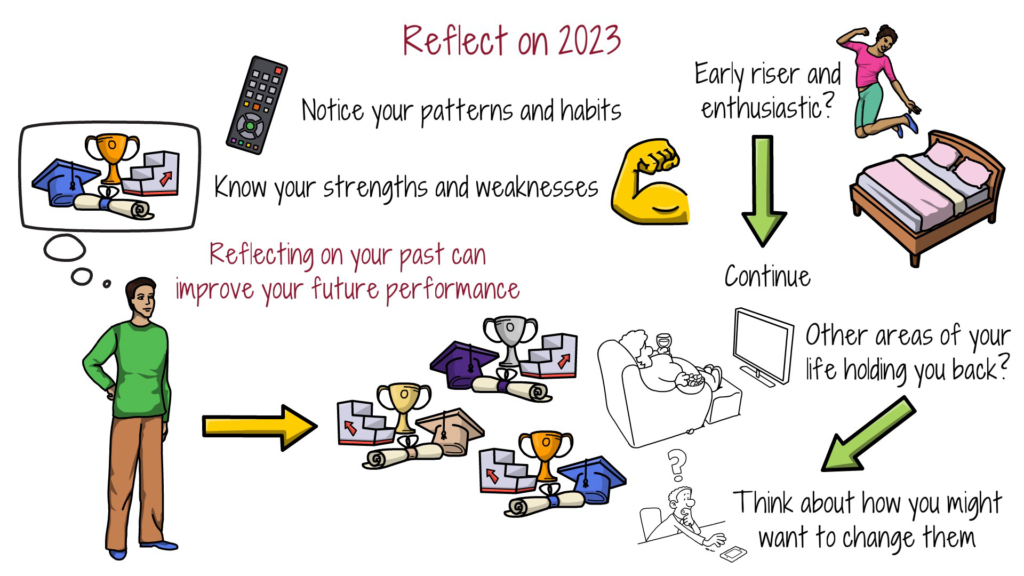
Notice your patterns and habits, both good and bad. When you know your strengths and weaknesses, you can identify what’s working FOR you, and what’s working against you.
For example, if you’re a person who rises early in the morning and starts the day with vigor and enthusiasm, then that’s a habit you’ll want to continue. But if you identify other areas of your life that are holding you back, such as fears, unhealthy food choices or toxic relationships, you can examine these behaviors, and think about how you might want to change them.
Some topics you might choose to reflect on, depending on what’s relevant to you, could be your health, your career, your relationships, self-care, and personal growth.
Journaling about your personal thoughts on the past year can help put things into perspective. Some examples of questions to ask yourself are things like:
- How did I spend the majority of my time, and how do I feel about that?
- What was the best thing that happened to me in the past year?
- What were my biggest achievements?
- What was my lowest point and why?
- What lessons did I learn, and what might I do differently next year?
- What was I most thankful for?
- What goals did I have that didn’t happen? And do I want to carry them over to next year?
By reflecting on the feelings and events of 2023, you can begin to form a picture of what happened and why. Take the information you gather from your observations and create a new plan.
Set S.M.A.R.T. Goals
Once you’ve identified what areas of your life you want to focus on, then begin the planning process. Deciding what your goal is, setting an end date to accomplish it, and writing down the steps you’ll take can help create a solid plan.
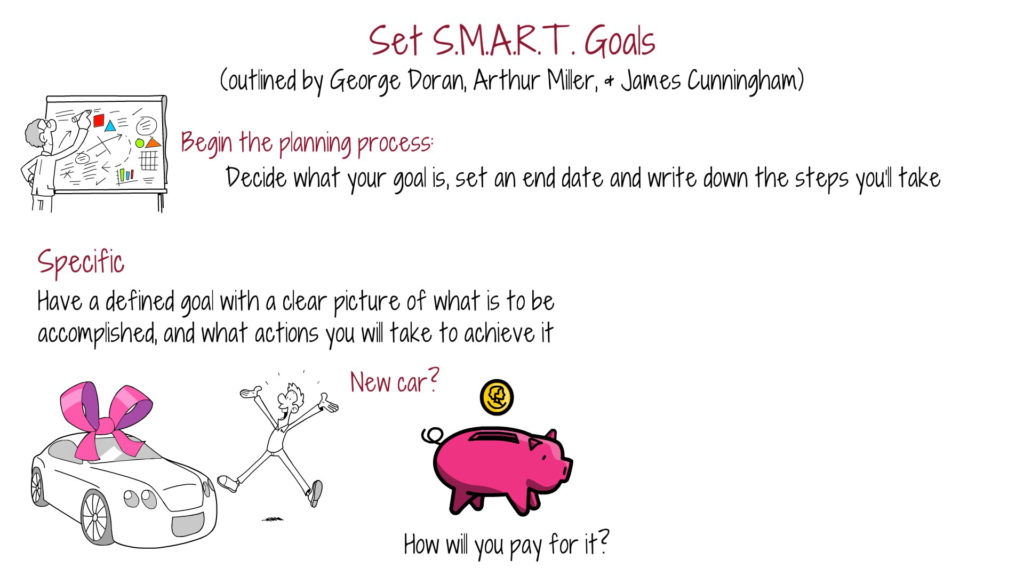
One method often used to help formulate goals is called the S.M.A.R.T. system, and was outlined in an article, written in 1981, by George Doran, Arthur Miller, and James Cunningham.
5 Key Aspects of the acronym “S.M.A.R.T.” are:
- Specific – Have a defined goal with a clear picture of what is to be accomplished, and what actions you will take to achieve it. For example, if your goal is to buy a new car, know exactly what car you want, and how you will pay for it. Make a step by step plan that includes saving money each month for a down payment, and arranging your budget to include the new car payment. By factoring in details of your plan, you can be clear about what it is you want and how to get there.
- Measurable – Think about how you will track your progress. Once you know what your goal is, you need to be able to measure your success along the way to be sure you are reaching your milestones. In thinking of the car scenario, checking each month to be sure you are putting money aside for the down payment can create momentum as you watch your savings grow. If you are not able to save money each month, then you can use this information to restructure your goal.
- Achievable – Be realistic about the goals you set. Smaller goals may be met more easily in less time. But a large goal, like buying the car, may need more steps, or more planning. You may need to extend the end date to give yourself more time to save up the money. Or adjust your expectations, and buy a lower priced car. Breaking a large goal into smaller steps can keep you going over a longer period of time, and make the overall task more manageable. If the goal you set requires additional skills or education, these can be made into individual goals of their own.
- Relevant – When setting a goal, choose something that really matters to you. If it will make a difference in your life, such as better health, improved finances, or make life easier and more enjoyable in some way, you will be more likely to stick with it. If your heart’s not in it, it may be hard to justify the time and energy you need to invest, to reach the goal.
- Time-Bound – Setting a finish line for your goal, lets you know how close you are to achieving it, and when you have actually completed the goal. It allows you to plan your steps in a timely fashion that makes it manageable and measurable.
By setting goals using the S.M.A.R.T. method, you can focus with intention, using a step by step plan, track your success along the way, and reach a clearly defined finish line!
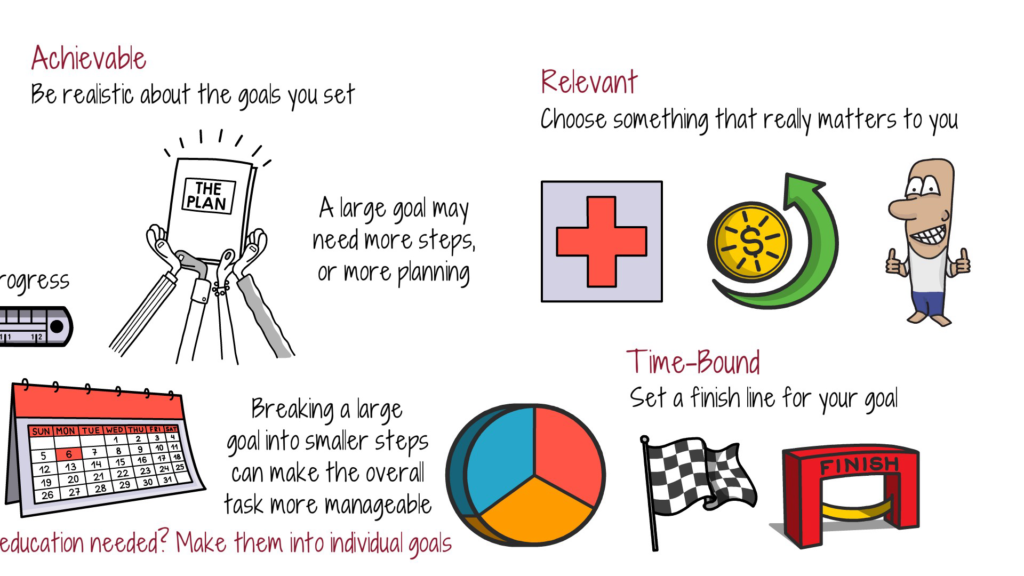
Some people add “E.R.” to the S.M.A.R.T. method, which then reads, “S.M.A.R.T.E.R.”, to include the words, “Evaluate” and “Reward”. Evaluating your finished goal and rewarding your efforts can bring even more value to the process.
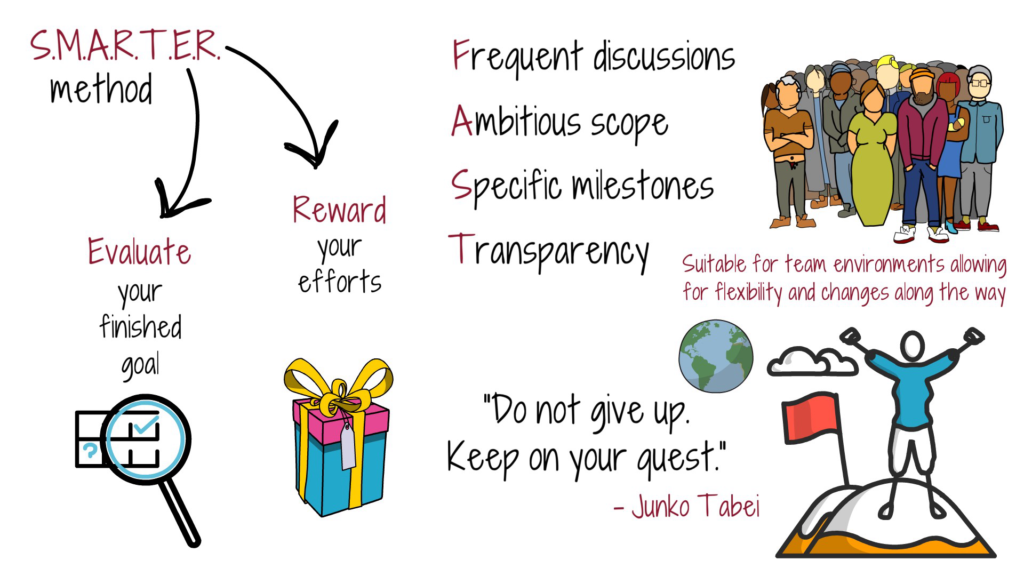
Another method used in goal setting uses the acronym “F.A.S.T.”, which stands for “frequent discussions, ambitious scope, specific milestones, and transparency.” This system is more geared for team environments and allows for flexibility and changes along the way. Regardless of what system you use to set goals, the main thing is to find something that works for you, and don’t quit.
Mountain climber, Junko Tabei, was the first woman to complete the “Seven Summits”, climbing the tallest mountain on each continent. She was familiar with setting goals and achieving them, which is reflected in her motto,
“Do not give up. Keep on your quest.”
Prioritize
How do you decide what goals to set? Maybe you don’t have very many goals in mind. Or maybe you have so many you don’t know where to start. When planning goals for the coming year, it may be helpful to think about what’s really important to you. Setting a goal that will make a difference in your life will be easier to get excited about.
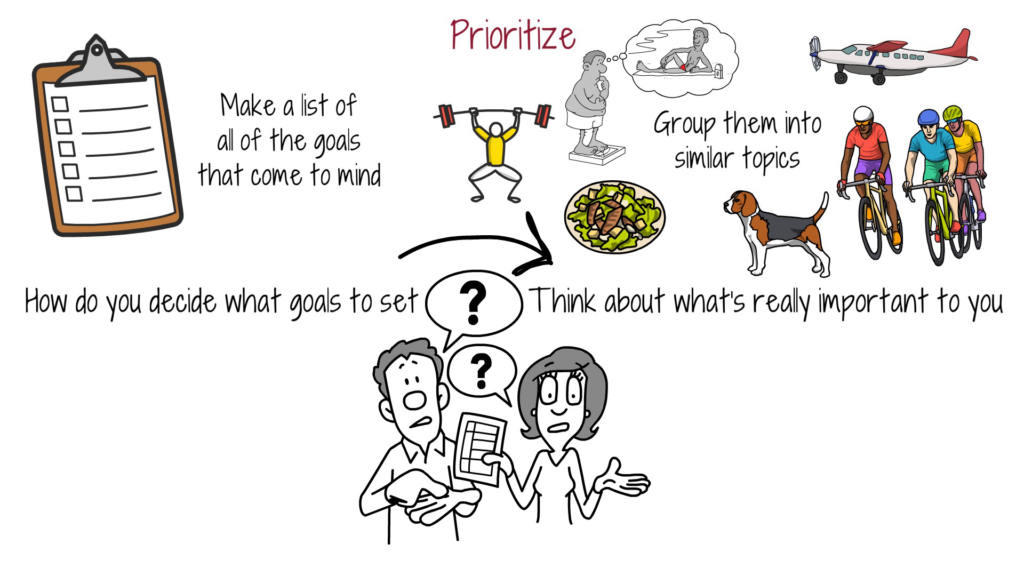
Make a list of all of the goals that come to mind. It may be helpful to group them into similar topics. For example, in the health category, you may list things like weight loss, exercise, and healthy eating. In the fun goal category you may write down travel ideas, learning a new craft or sport, or adopting a pet. Once you have all of your ideas on paper, rank them within their group as to which are most meaningful or realistic for you. Continue to narrow down the list until you have five goals that you want to work on next year.
Once you know which items are most important to you, you can then begin to plan the steps to achieve them.
Final Thoughts
Author C.S. Lewis wrote,
“You are never too old to set another goal or to dream a new dream.”
As you look forward to 2024, think about the goals you have for your life and how you want to achieve them. Find support and encouragement from people you trust, evaluate your progress often, and hold yourself accountable to succeed.
The coming year is the perfect time to reach new heights by setting goals that matter most to you.
So go ahead and plan the celebration now. You got this!
